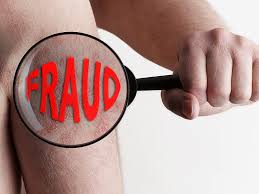Prosecuting Doctors for Medicare Fraud
 Federal prosecutors have turned their attention to physicians for Medicare fraud prosecution. Physicians who participate in the Medicare program have to be aware of the significant risks of Medicare fraud.
Federal prosecutors have turned their attention to physicians for Medicare fraud prosecution. Physicians who participate in the Medicare program have to be aware of the significant risks of Medicare fraud.
In June, federal law enforcement orchestrated the largest nationwide Medicare bust of all time – 243 individuals were charged, including 46 doctors, nurses, and other licensed medical professionals for their participation in Medicare fraud schemes involving $712 million in false billings.
The fraud schemes involved a variety of medical treatments and services, including home health care, psychotherapy, physical and occupational therapy, durable medical equipment, and pharmacy fraud. The defendants participated in alleged schemes to provide treatments and equipment that were not medically necessary and often never provided the alleged services.
Medicare beneficiaries and other co-conspirators were paid cash kickbacks in return for their personal information so that providers could submit fraudulent bills to Medicare.
Federal prosecutors are not just bringing criminal cases against physicians. The Health and Human Services, Office of inspector General, has a robust enforcement program.
On June 9, 2015, the OIG issued a fraud alert warning physicians about illegal physician compensation agreements that implicate the Anti-Kickback statute. The OIG settled an enforcement action with 12 physicians who received illegal compensation under medical directorship arrangements that tied compensation to the number of physician referrals, payments that did not reflect fair market value for services rendered, or were payments for services not provided. In some cases, an affiliated health care entity paid the salaries of physicians’ administrative staff. All of these types of payments are illegal remunerations under the AKS statute.
This latest fraud alert follows another notice issued in 2014 warning physicians about referral fees received from laboratories for blood specimen collection, processing, and packaging, and for submitting patient data to a registry or database. The OIG reiterated its warning that physicians should not receive referral fees or below cost services from laboratories as an illegal inducement to refer patients to laboratories under the AKS statute.
A quick glance on the OIG list of Medicare fraud prosecutions reveals the following cases against physicians:
August 31, 2015: Detroit physician pleads guilty to $5.7 million fraud scheme;
August 28, 2015: Illinois dermatologist sentenced to 7 years in prison for defrauding Medicare and private insurers of $3.7 million;
August 25, 2015: Medical director and three therapists convicted in $63 million health care fraud scheme;
August 19, 2015: Phoenix doctor agreed to pay $207,988 to resolve civil allegations that he violated the False Claims Act by submitting false bills to Medicare;
August 14, 2015: Brooklyn, NY doctor sentenced to 2 years in prison for engaging in $13 million health care fraud scheme;
August 12, 2015: Long Island physicians pay $1.1 million to resolve fraud allegations that they provided and billed for unnecessary medical testing;
August 10, 2015: New Jersey doctor admits billing for bogus office visits and altering patient records involving hundreds of thousands of dollars.
The list continues on and on.
Over the next year, the number of physicians under scrutiny is going to increase. Why?
HHS-OIG has received a significant budget increase for its Medicare and Medicaid oversight and enforcement activities. In addition, the OIG has announced creation of a special litigation team focusing on prosecution of illegal kickback schemes, against the payors of kickbacks and the recipients (i.e. physicians).
 Smart and thoughtful physicians would be well advised to exercise care when entering financial arrangements with healthcare entities (e.g. hospitals, hospice centers) or related entities (e.g. Physician Owned Distributors, MRI centers). As part of this inquiry, physicians have to review carefully existing financial arrangements to ensure that they do not violate the AKS or the False Claims Act.
Smart and thoughtful physicians would be well advised to exercise care when entering financial arrangements with healthcare entities (e.g. hospitals, hospice centers) or related entities (e.g. Physician Owned Distributors, MRI centers). As part of this inquiry, physicians have to review carefully existing financial arrangements to ensure that they do not violate the AKS or the False Claims Act.
Just as important is the need for physicians – small, medium, and large groups – to design and implement a compliance program. The elements of an effective compliance program are well-known and published on the OIG’s website (here). A compliance program may prevent fraud and is an important demonstration to the OIG of the importance that physicians’ place on compliance.














